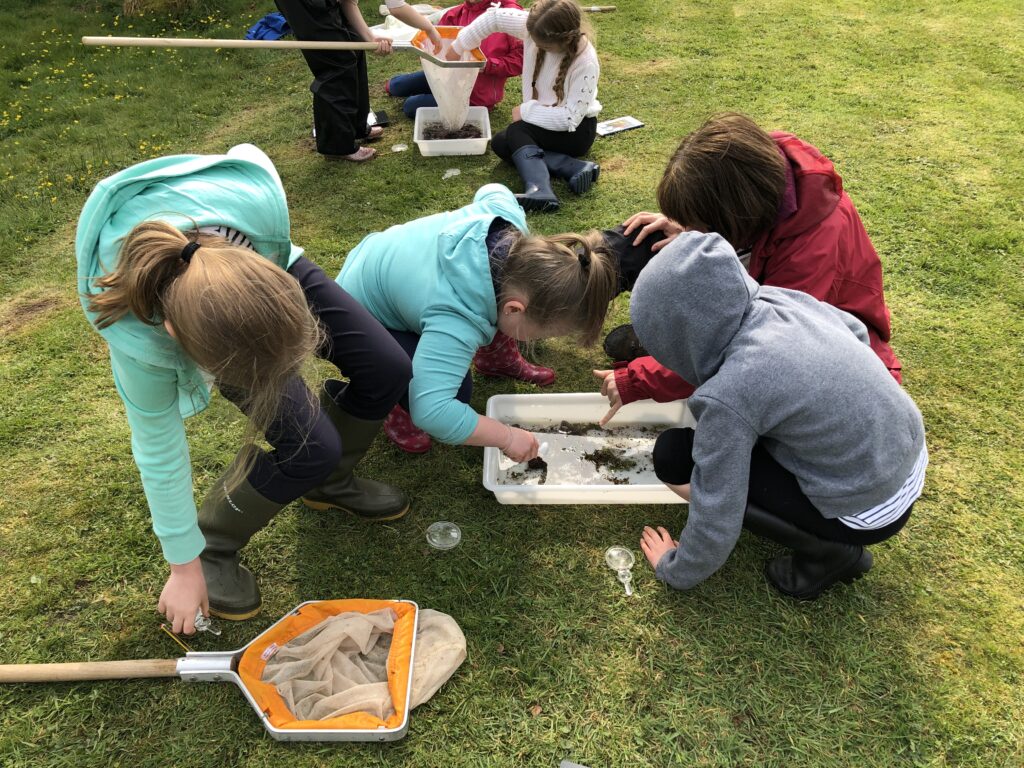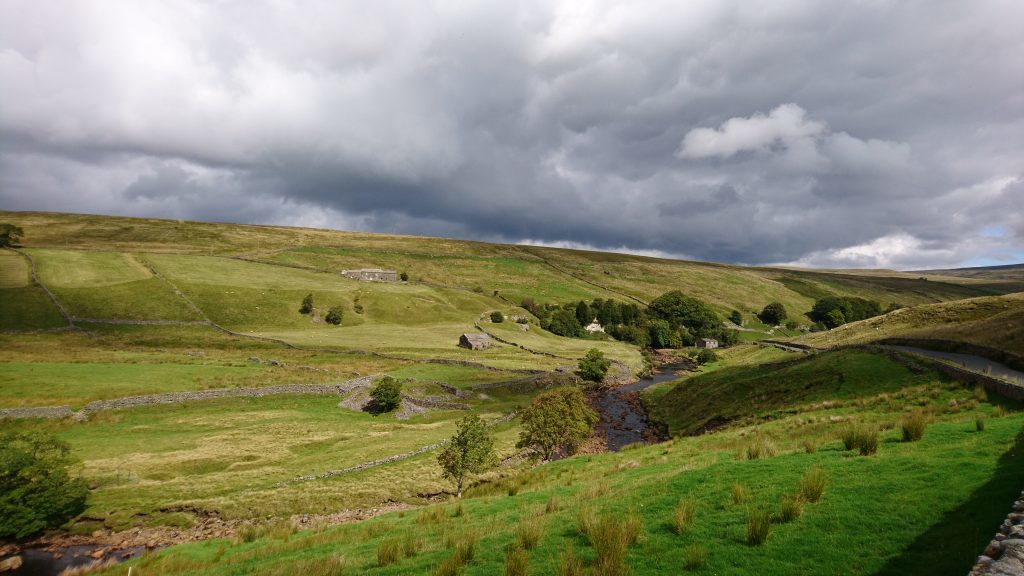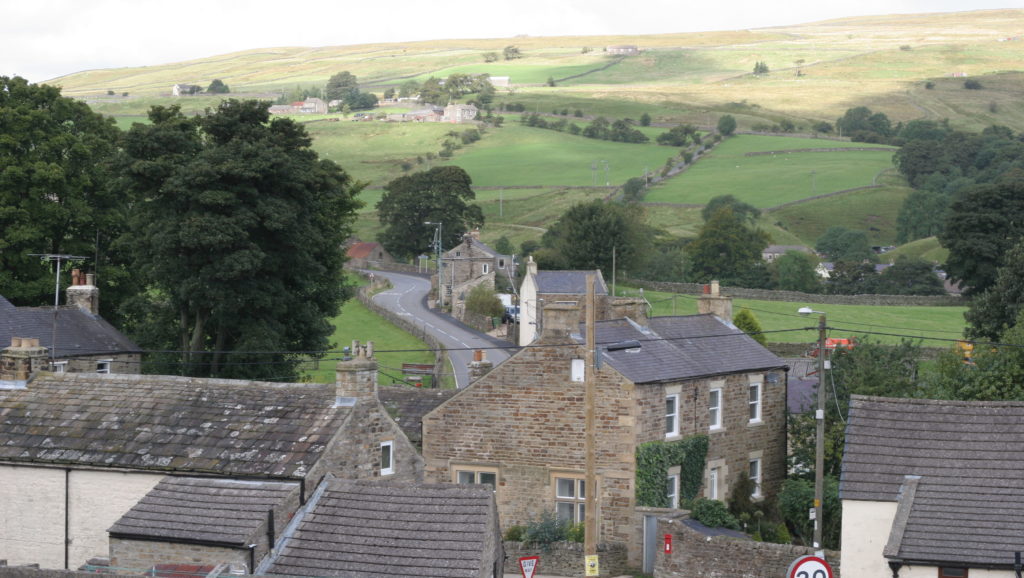News
Press release
25 April 2025
Festival co-founders purchase 2000 plants to restore peatland
Stanhope Weekender festival co-founders have donated funds to purchase plug plants to restore peatland in the North Pennines National Landscape.
Thanks to the donation from festival organisers Sean Stembridge and Lewis Maddison, the North Pennines National Landscape team’s peatland programme has planted 2000 sphagnum plug plants to restore degraded peatland.
Sean and Lewis’s involvement in the peatland restoration work is part of their commitment to reduce the environmental impact of the festival.
They recently joined a field officer from the North Pennines team at a restoration site to see the result of their contribution and learn more about the ongoing restoration work, which is critical for protecting the planet.
Peatlands are a globally significant habitat which store vast quantities of carbon but when damaged, carbon emissions are released into the atmosphere. Planting sphagnum is a key part of the restoration process. Sphagnum thrives in wet areas and can hold a large amount of water. Reintroducing the sphagnum onto the peatland enhances the biodiversity of the area, slows down the erosion of the peatland and reduces the risk of flooding downstream.
Sean Stembridge, co-founder said: “Our event is deeply rooted in this landscape. The North Pennines National Landscape has almost 30% of England’s blanket bog peatland and we’re proud to play a small part in protecting it. This isn’t just about offsetting our footprint—it’s about leaving a positive legacy in the area we call home.”
Lewis Maddison, co-founder said: “It’s important to us that the Stanhope Weekender stands for more than just great music and good times. Supporting local restoration work shows what’s possible when events and nature work together for a better future.”
Paul Leadbitter, Peatland Programme Manager of the North Pennines National Landscape said: “We are really pleased to have Stanhope locals Lewis and Sean involved in our peatland restoration work. Gaining support from the private sector through green finance helps our team’s peatland programme to carry out the restoration work at a landscape-scale. We look forward to working with the festival organisers again in the future.”
You may also like...
Did you know…
Notes for editors
1. Contact Sarah Hudspeth, Communications Lead from the North Pennines National Landscape team for further information – communications@northpennines.org.uk Phone: 01388 528801 / 07768 123247
2. Images from Stanhope Weekender’s visit to a peatland restoration site are attached. For alternative images please contact Sarah, Kate or Jane on communications@northpennines.org.uk
3. The North Pennines National Landscape is one of England’s most special places – a peaceful, unspoilt landscape with a rich history and vibrant natural beauty. It was designated as an Area of Outstanding Natural Beauty (AONB) in 1988. The purpose of this nationally recognised designation is the conservation and enhancement of the natural beauty of the area.
4. At almost 2,000 sq. kilometres the North Pennines is the second largest of the 46 National Landscapes (in England, Wales and Northern Ireland) and is one of the most peaceful and unspoilt places in England. Visit www.landscapesforlife.org.uk for information about the National Landscapes family.
5. The North Pennines lies between the National Parks of the Lake District, the Yorkshire Dales, and Northumberland with the urban centres of County Durham away to the east. Parts of the National Landscape are within the boundaries of four local authorities; Cumberland Council, Durham County Council, Northumberland County Council, and Westmorland & Furness Council.
6. The North Pennines National Landscape Partnership is an alliance of public, statutory and voluntary sector bodies with an interest in the future of the North Pennines. The work of the Partnership is carried out by the National Landscape team which takes action to conserve and enhance the natural beauty of the area, to raise awareness of its special qualities and to improve the quality of life for local people.
7. UNESCO Global Geopark – As well as being a National Landscape, the North Pennines is a UNESCO Global Geopark. This puts the area’s Geopark status in the same UNESCO family as World Heritage Sites and Biosphere Reserves. UNESCO Global Geoparks are places with outstanding geology where special effort is made to make the most of geological heritage to support community and economy. Locally this includes producing geo-trails, developing projects with school and community groups, producing displays for visitor attractions and holding geology festivals and events.














